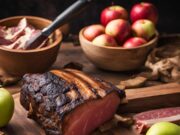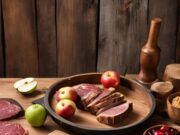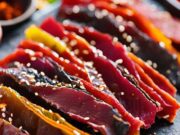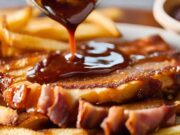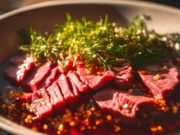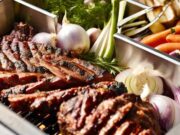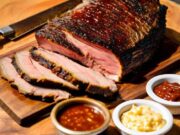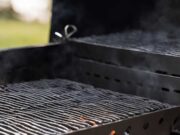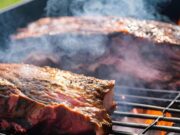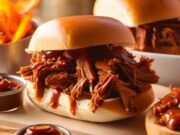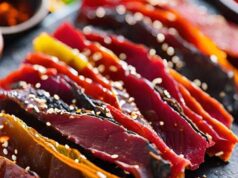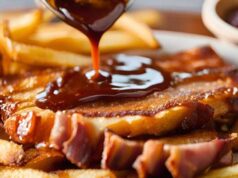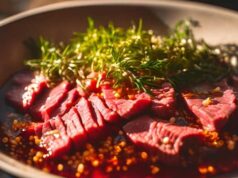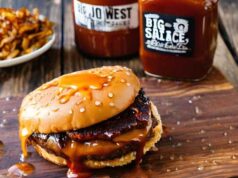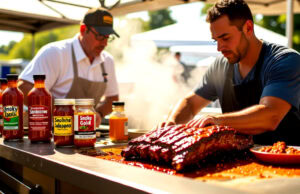- Key Takeaways:
- Understanding BBQ vs. Grilling
- Essential Ingredients for BBQ Chicken
- Choosing the Best Cuts of Chicken
- Preparation Techniques for Juicy Chicken
- Grilling Techniques for Perfect BBQ Chicken
- Checking Doneness: Mastering Internal Temperature
- Serving Suggestions and Pairings
- Common Mistakes to Avoid When Grilling
- Frequently Asked Questions
Grilling the perfect BBQ chicken is an art that merges technique, quality ingredients, and a touch of passion.
Whether you are a backyard novice or an experienced grill master, grasping the distinctions between BBQ and grilling, selecting the right cuts, and employing effective preparation methods can elevate your chicken into a juicy masterpiece.
This guide provides essential tips, highlights common pitfalls to avoid, and offers serving suggestions that will position your BBQ chicken as the centerpiece of any cookout.
Prepare to enhance your grilling expertise.
Key Takeaways:
- Understand the difference between BBQ and grilling for successful chicken cooking.
- Choose quality chicken cuts and prepare them properly for juicy results.
- Master temperature control and avoid common mistakes to perfect your BBQ chicken skills.
Understanding BBQ vs. Grilling
Understanding the distinction between BBQ and grilling is essential for any aspiring grill master, as each cooking method offers unique flavors and textures that can elevate your chicken dishes into crowd-pleasers.
Grilling typically involves cooking food quickly over direct, high heat, often for short periods, while BBQ embraces a slower, more patient approach. In grilling, temperatures can rise significantly, often exceeding 500°F, which creates a crispy exterior and facilitates rapid cooking. Conversely, BBQ techniques operate at lower temperatures, usually between 225°F and 275°F. This slower method allows for the development of rich, smoky flavors that characterize a classic BBQ experience, underscoring the importance of wood smoke and its impact on the overall flavor profile.
The choice of wood for smoking can impart distinct taste characteristics, further distinguishing BBQ from grilling. This selection can elevate your chicken dishes to new culinary heights, enhancing their appeal and creating memorable dining experiences.
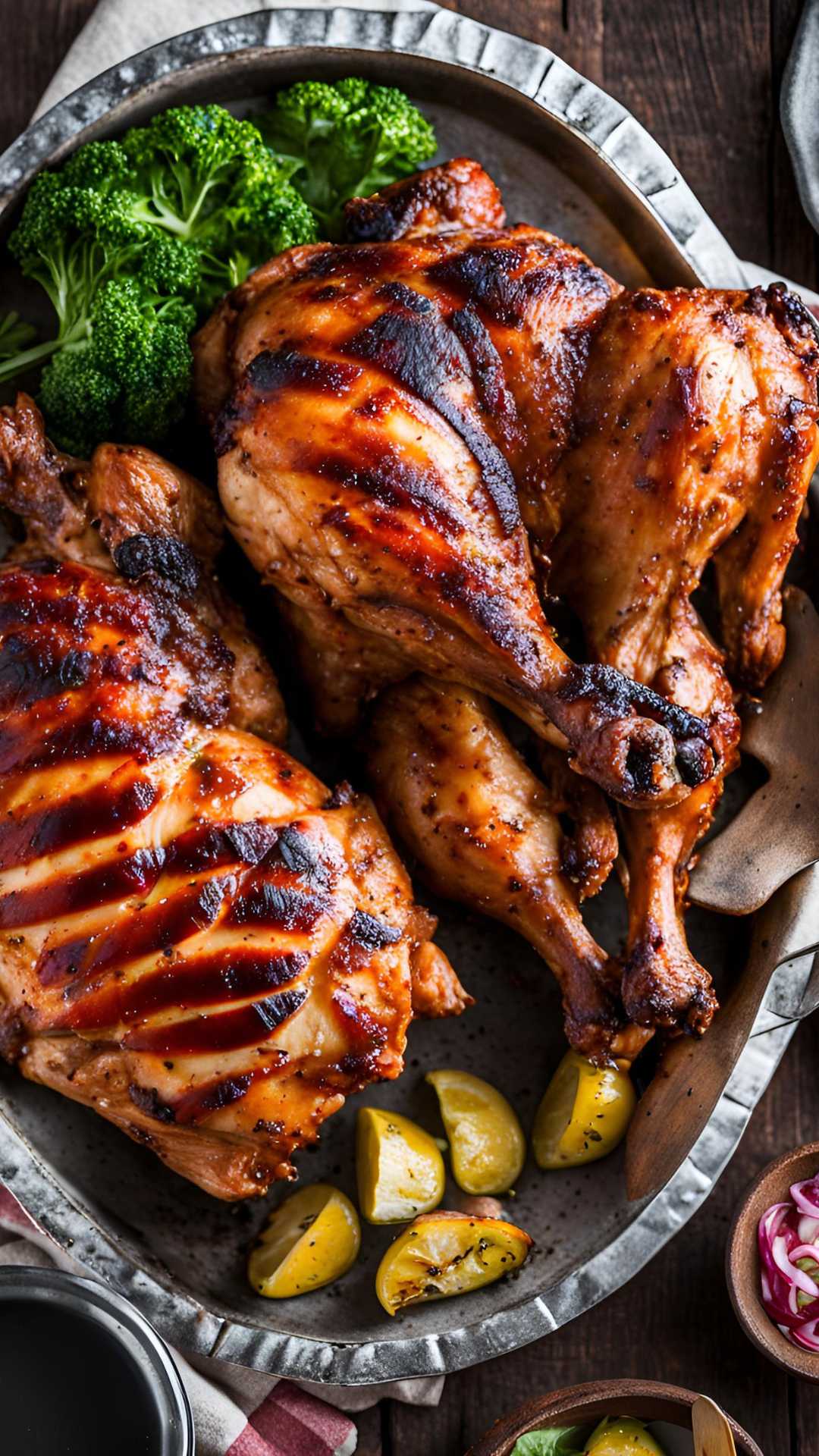
Essential Ingredients for BBQ Chicken
The essential ingredients for BBQ chicken are crucial in creating the perfect blend of flavors. Begin with a robust dry rub that often includes smoked paprika and chili powder, and finish with a rich homemade BBQ sauce that can elevate your dish.
To achieve that mouthwatering taste, it is important to consider key components such as garlic powder, onion powder, and a hint of cayenne for a touch of heat. These spices not only build a complex flavor profile but also enhance the overall depth of the chicken’s taste.
As the chicken cooks, the unique combination of these spices melds beautifully with the sweetness of molasses or brown sugar typically found in BBQ sauces, producing a caramelized outer layer that locks in moisture. The tanginess from apple cider vinegar or mustard in the barbecue sauce provides a delightful balance to the rich flavors, ensuring each bite is a savory delight that keeps diners coming back for more.
Choosing the Best Cuts of Chicken
Regarding BBQ chicken, selecting the best cuts is crucial for achieving tender, flavorful, and juicy poultry. Chicken thighs and chicken legs are often preferred due to their rich taste and moisture retention during grilling.
While chicken breasts can also be utilized, they require careful management to prevent drying out. Opting for bone-in and skin-on varieties is particularly beneficial for BBQ enthusiasts, as the skin helps to retain moisture, and the bone adds depth of flavor that enhances the overall dish.
When choosing chicken for grilling, prioritize cuts with a good amount of fat, as this will contribute to a succulent final result. Additionally, consider marinating the chicken in robust sauces that not only highlight its natural flavors but also complement the smoky essence of BBQ cooking.
Preparation Techniques for Juicy Chicken
Preparation techniques such as marinating, brining, and allowing your chicken to rest before grilling can significantly enhance the texture and flavor of your BBQ chicken, ensuring that every bite is a juicy delight.
Marinating involves soaking the chicken in a flavorful liquid, which infuses the meat with aromatic spices while also tenderizing it for a succulent finish once cooked. On the other hand, brining uses a saltwater solution that helps retain moisture during the grilling process. This technique is particularly important for lean cuts, as it prevents dryness and enhances overall juiciness when exposed to high heat.
Allowing the chicken to rest after grilling is crucial, as it allows the juices to redistribute throughout the meat, ensuring that each bite offers a burst of rich flavor. When combined, these methods lay the groundwork for mouthwatering BBQ chicken that is sure to impress your guests.
Grilling Techniques for Perfect BBQ Chicken
Employing the right grilling techniques, such as mastering the use of indirect heat and high direct heat, is crucial for cooking BBQ chicken evenly. Utilizing tools like a basting brush and large tongs will help you manage the chicken effectively on the grill.
To ensure that the chicken comes out juicy and flavorful, it is essential to understand the concept of zone grilling. This technique involves creating different heat zones on the grill, allowing for both searing and slower, indirect cooking, which is particularly useful for larger cuts of meat.
By placing chicken pieces over indirect heat after they have developed a nice sear, you can minimize the risk of burning while still achieving that irresistible char. Familiarizing yourself with grilling tools, such as meat thermometers and grill baskets, can greatly enhance your cooking process, making it easier to monitor progress and avoid drying out the meat.
Checking Doneness: Mastering Internal Temperature
Mastering internal temperature checks is essential for ensuring that your BBQ chicken is thoroughly cooked and safe to eat. A reliable thermometer is your best tool for confirming that chicken thighs, legs, and breasts reach the proper cooking temperatures.
Understanding the importance of these checks not only enhances the flavor of your dishes but also significantly reduces the risk of foodborne illnesses. For maximum safety, the USDA recommends that all poultry reach an internal temperature of at least 165°F. For example, chicken breasts, which are typically leaner, require careful monitoring to prevent drying out, while thighs and legs can be delightfully succulent when cooked to around 175°F to 180°F.
Always insert the thermometer into the thickest part of the meat, avoiding any bones to ensure an accurate reading. By emphasizing these practices, you can create safer and more enjoyable meals for everyone.
Serving Suggestions and Pairings
When serving BBQ chicken, you can enhance the overall dining experience by pairing it with refreshing sides like potato salad, coleslaw, and grilled vegetables, making your summer cookout an enjoyable gathering for family and friends.
To elevate the meal even further, consider incorporating baked beans or corn on the cob as delightful additions that bring comforting flavors to the table. For a visually impressive presentation, arrange the sides in colorful bowls or platters, garnishing them with fresh herbs or citrus slices for a vibrant touch.
A light vinaigrette dressing drizzled over a mixed green salad can beautifully complement the smoky richness of the BBQ chicken. Additionally, providing a variety of dipping sauces, such as tangy barbecue or zesty ranch, will cater to different taste preferences and create a memorable culinary experience for all your guests.
Common Mistakes to Avoid When Grilling
Avoiding common mistakes when grilling BBQ chicken, such as cooking it for the wrong amount of time or ending up with soggy skin, is crucial for achieving the perfect texture and flavor that your guests will appreciate.
To enhance your grilling experience and ensure delicious results, it is essential to pay attention to various factors, including the type of marinade used, the correct grill temperature, and the timing of flipping the chicken. Many people underestimate the importance of allowing the chicken to rest after grilling; this step is vital for locking in juices and maximizing flavor.
Using a meat thermometer can help you determine the chicken’s doneness without the guesswork. By familiarizing yourself with these common pitfalls, you can elevate your BBQ chicken game, leaving everyone raving about the smoky, juicy perfection of your dish.
Frequently Asked Questions
What are the essential tips for mastering BBQ chicken?
To achieve juicy and delicious BBQ chicken, it is important to marinate the chicken beforehand, cook it over indirect heat, and baste it with sauce towards the end of cooking. Also, using a meat thermometer to ensure the chicken is cooked to the right temperature is crucial.
What type of marinade works best for BBQ chicken?
A marinade with a balance of acid, oil, and seasonings will work best for BBQ chicken. You can use a mixture of vinegar or citrus juice, oil, and herbs and spices like garlic, paprika, and thyme. Let the chicken marinate for at least 30 minutes or overnight for maximum flavor.
How do you prevent BBQ chicken from drying out?
One of the main causes of dry BBQ chicken is cooking it over direct heat for too long. To prevent this, start by cooking the chicken over indirect heat and then move it over to direct heat towards the end. Basting with sauce will also add moisture and flavor to the chicken.
What is the recommended internal temperature for BBQ chicken?
The recommended internal temperature for BBQ chicken is 165°F (74°C). Use a meat thermometer to check the thickest part of the chicken to ensure it has reached this temperature. This will guarantee that the chicken is fully cooked and safe to eat.
What are some additional techniques for achieving juicy BBQ chicken?
Aside from marinating and basting, you can also try brining the chicken before cooking. This involves soaking the chicken in a saltwater solution for a few hours, which helps to lock in moisture. You can also try using a BBQ dry rub or injecting the chicken with a marinade for added flavor and juiciness.
Is there a recommended resting time for BBQ chicken before serving?
Yes, it is recommended to let the chicken rest for 5-10 minutes before serving. This allows the juices to redistribute and ensures that the chicken stays juicy and tender. Resist the temptation to cut into the chicken right away, as this will cause the juices to run out and result in drier meat.



